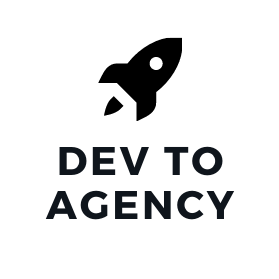You are the gold standard
The gold standard is the measure by which everything else is measured, and when starting a small software agency - or in fact any small business where the owner is also at the coalface of where shit gets done - you have the opportunity of setting the gold standard of what's expected.
The quality that is expected, the communication that is expected, the client respect that is expected. You are walking-the-walk as opposed to just talking-the-talk - and this is a superpower of the small that should be used to your advantage.
The owner/maker standard🥇
In all the businesses I have started I have been both the owner and the maker. I don't think my software agency would have been as successful otherwise, especially in those early years. Being an owner/maker puts you in the unique position of being able to design and implement the standards you want for your business, but also be able to personally practise them day-to-day and lead by example. Being a boss and a builder also creates a smaller feedback loop, allowing for quicker detection of standards and processes that need tweaking - which means moving faster towards higher quality.
You directly impact your business, you are on the front line. Your not just sitting behind a large desk 6 floors above the code-monkeys who are writing the software - you are both a CEO and code-monkey. (I hate that term, mental note: never say "code monkey" again). Upper management does not need to authorise your decisions, and there isn't a committee and multiple meetings required to agree on an approved strategy - there is just you, and this is a strength.
What should I standardise? 📚
First of all, you don't need to go over the top with policies and procedures for everything, that sounds like a big company - and I'm all about embracing your small company specialities.
When you're starting out your business is an extension of you - and you will inevitably implement standards and practises based on what you value. These don't need to be etched into a stone tablet or framed above your desk - to be honest I don't really care if you write them down or not. But your business standards should be communicated clearly and consistently to your clients and your team, and you are the best to communicate this.
This will differ from person-to-person, but some standards that are important to me are;
- Project quality →This includes the software quality, but also that the solution actually nailed the problem, and the quality of client-vendor understanding was high.
- Client relationships → How the business interacts with clients from first contact, during a project, and long after a project is delivered.
- Teamwork → What is expected from your team and how they should help those around them.
Standardise you 🤟
By default, as the owner of a small business many of your own personality traits will become your business standards. For example:
- Curious → Create a culture of questioning and knowledge sharing
- Empathetic → Ensure clients understand that you understand their problem
- Friendly → Design a welcoming client onboarding flow
- Honest → Make sure clients have a clear understanding of costs
Positive traits are easier as they almost just happen by default, but it's important to also study your traits which do not always seem so positive, and flip them on their head to become positive standards in your business (and hopefully in your life). For example:
- Anxious → Ensure your business always has adequate runway in the bank account
- Forgetful → Create a culture of documentation
- Lazy → Create a culture of automation
- Negative → Help clients understand other options and alternatives
That's a lot of pressure 😳
Whilst it's important to set the gold standard as an owner/maker - this does not mean you needs to have every answer to every question.
As the Peter Parker principle states "With great power comes great responsibility", and it's true, you have a lot of power as the owner of your business. But you are not perfect, you are human - you will learn, improve, evolve, and tweak as you go along. Another big benefit of being small is that you can change easily, so use that to your advantage.
Laying a foundation of standards 🏠
There will be a time where your maker responsibilities take a back set to your owner responsibilities - but I believe to set the gold standard of how your business runs, being an owner/maker in those initial formative years is integral. You have then put in place the guidebook to ensure everyone knows what's expected, and as new team members join or new clients get signed on - there is consistency.
For my software agency I stepped away from daily coding after a few years, but by then we had strong standards along with checks-and-balances in place to ensure quality. Even though I was not programming anymore, I still kept and eye on our standards with daily code reviews, software architecture design chats with the team, and getting down-and-dirty with some quality assurance testing every so often.
